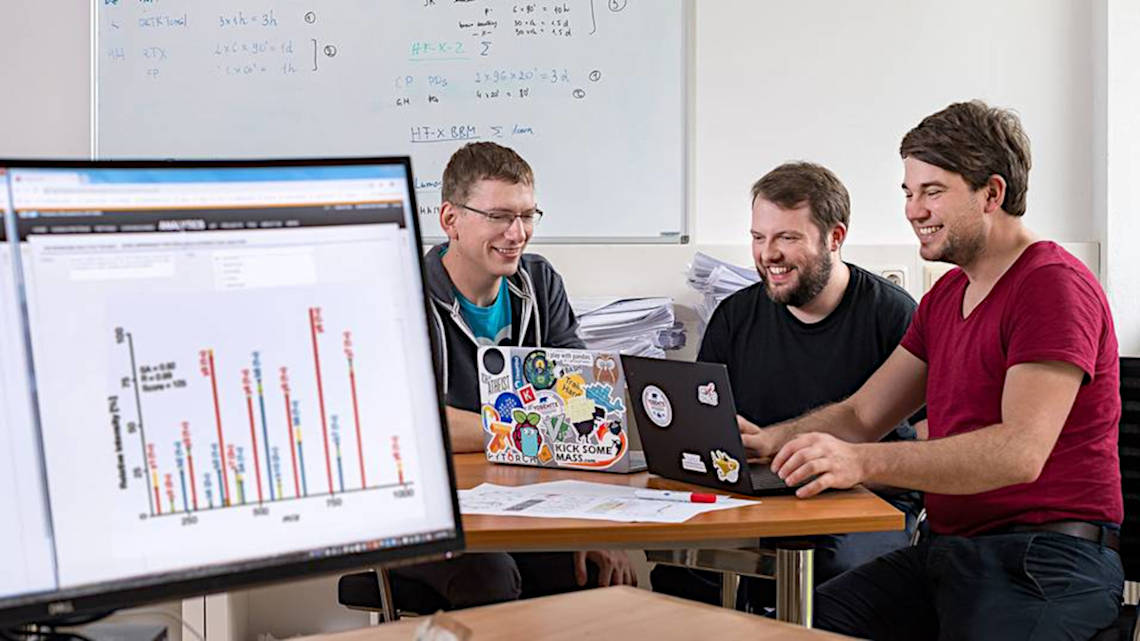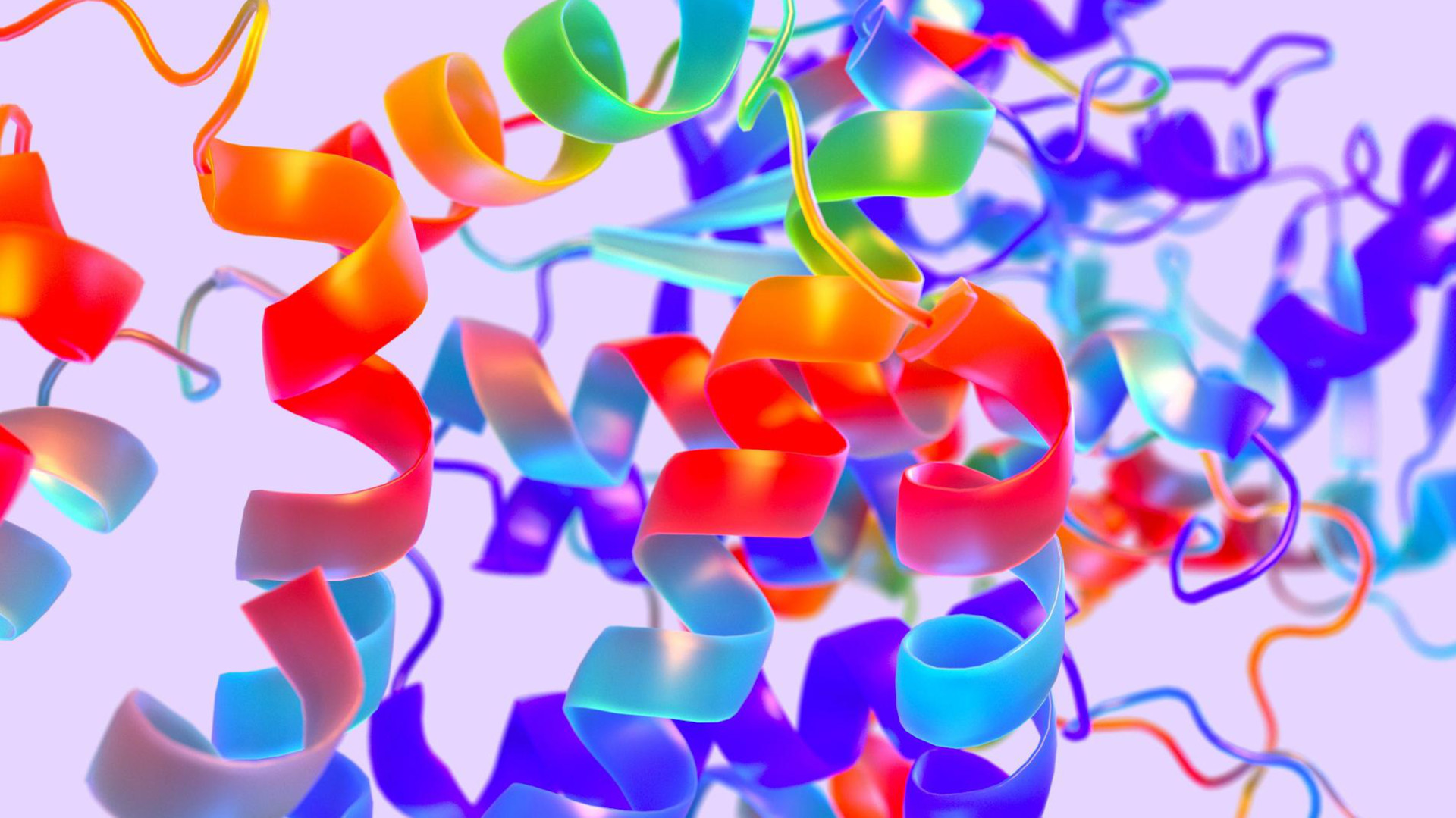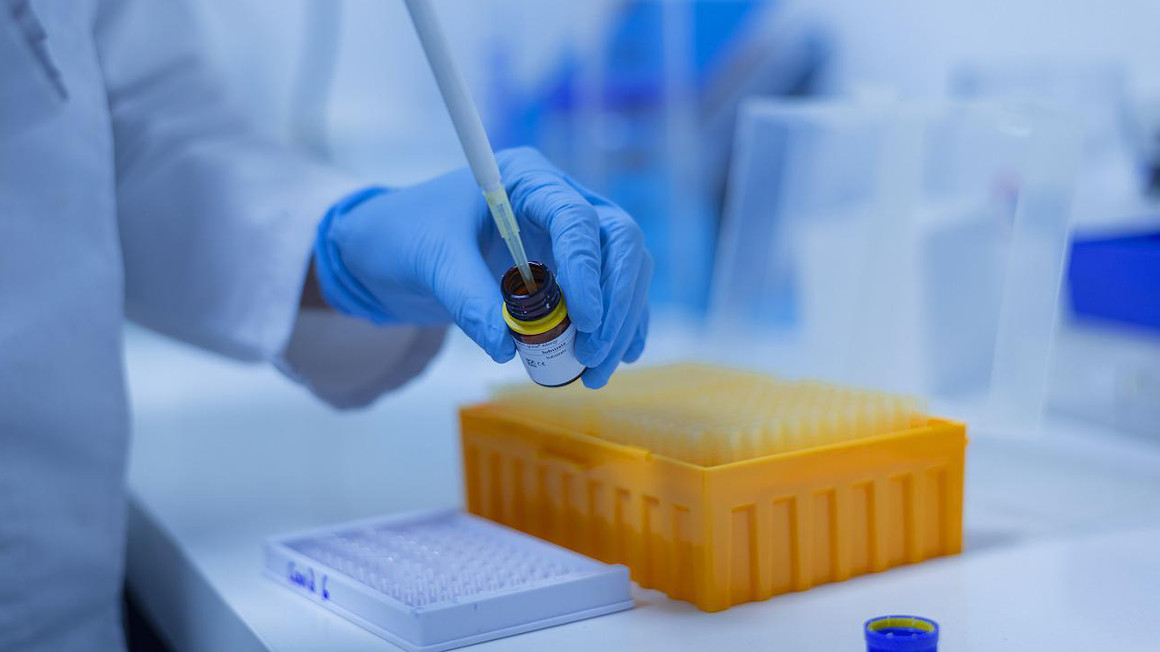KI revolutionizes protein analysis
Using artificial intelligence, researchers at TU Munich have improved protein analysis on the basis of mass spectrometry data.

Proteins form the basis of all processes in living cells. In order to understand these processes, it is important to identify the proteins involved and also to recognize when they deviate from the norm and thus possibly cause diseases. Researchers at the Technical University of Munich have now developed a method with which large quantities of proteins can be analyzed with unprecedented reliability. So far, mass spectrometry (MS) has been the bioanalytical method of choice for identifying proteins. By determining the mass of the molecules, it is possible to determine the type and quantity of protein molecules present in a sample. However, MS has methodological weaknesses: it only records a small part of the amino acids of a protein and compares this sequence with databases in order to arrive at the protein. This can lead to errors.
Algorithm trained with millions of mass spectra
Computer scientists and chemists at the Technical University of Munich have trained a self-learning algorithm with 100 million mass spectra of proteins, which they report on in the scientific journal "Nature Methods". This neuronal network uses the entire measured spectrum to identify proteins. As a result, "we miss fewer proteins and make 100 times fewer mistakes," explains biochemist Bernhard Küster. "Prosit", as the researchers called the artificial intelligence, works much faster than previous systems and makes practically no errors.
Universally applicable software
"Prosit is applicable to all organisms in the world, even if their proteomes have never been examined before," stresses bioinformatician Mathias Wilhelm. This makes it possible to carry out investigations that were previously inconceivable. In medicine, the new method is intended to revolutionize devices that search for biomarkers in the blood or urine of patients or monitor therapies with regard to their effectiveness. "AI methods such as Prosit will soon change the field of proteomics, as they can be used in almost every area of protein research."
His colleague Küster also expects great progress in basic research: "We hope to gain a considerable amount of knowledge here, which, in the medium and long term, will be reflected in the treatment of diseases suffered by humans, animals and plants." Prosit was developed as part of the ProteomeTools research program and funded by the German Federal Ministry of Education and Research (BMBF) with around 3.3 million euros. The new AI method is available via the ProteomicsDB platform.
bl/um


